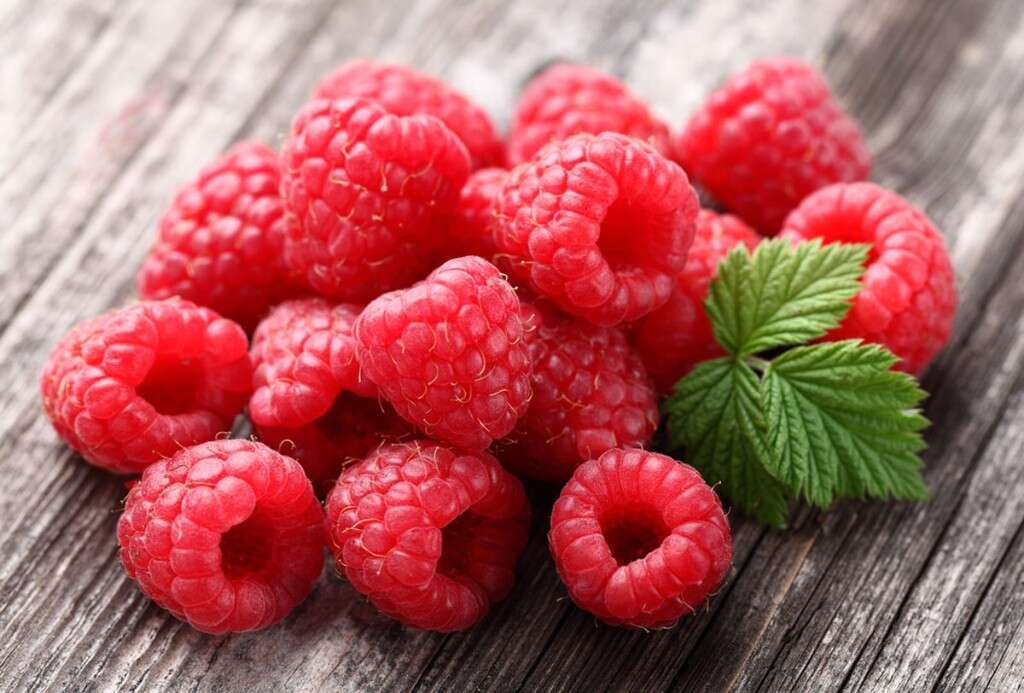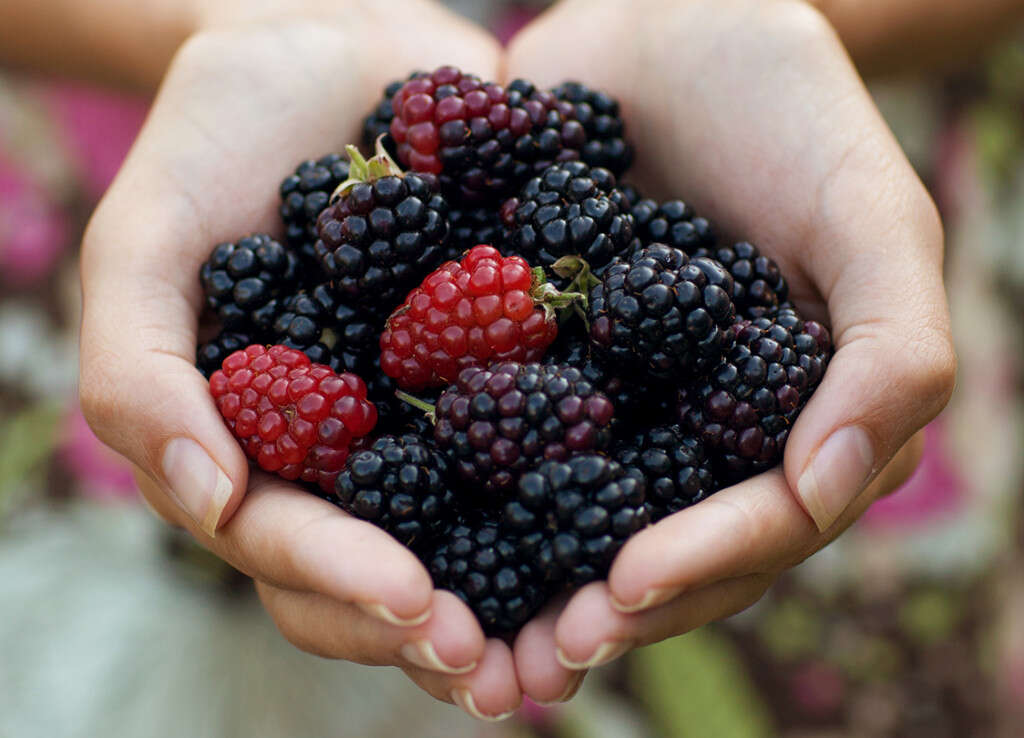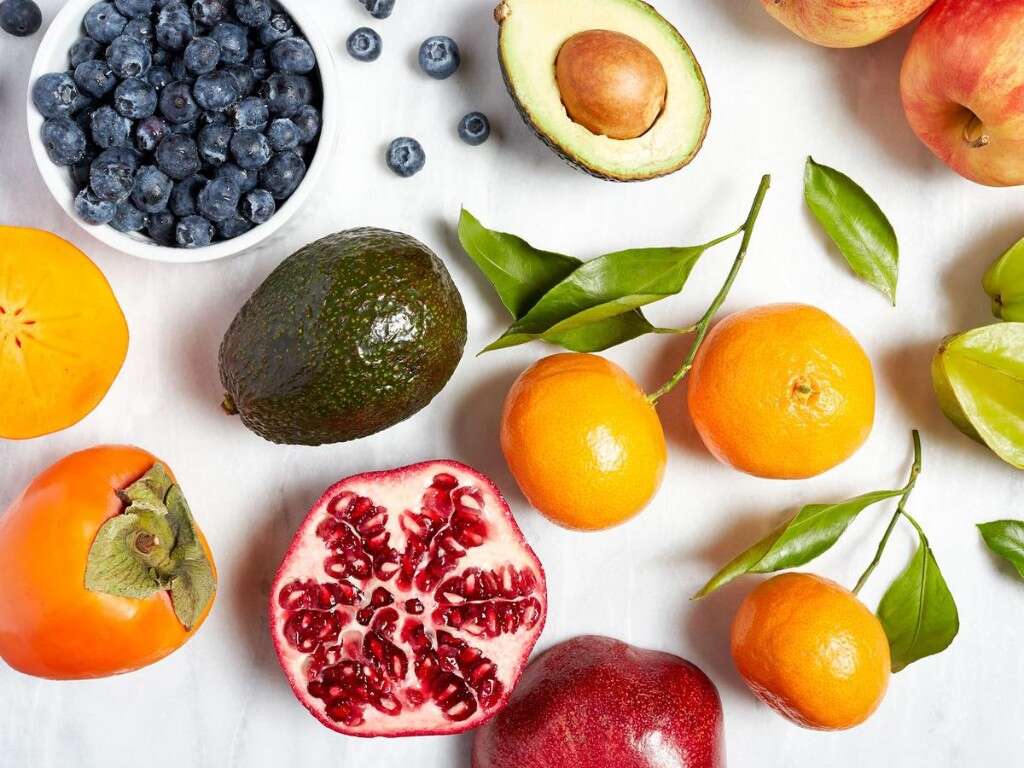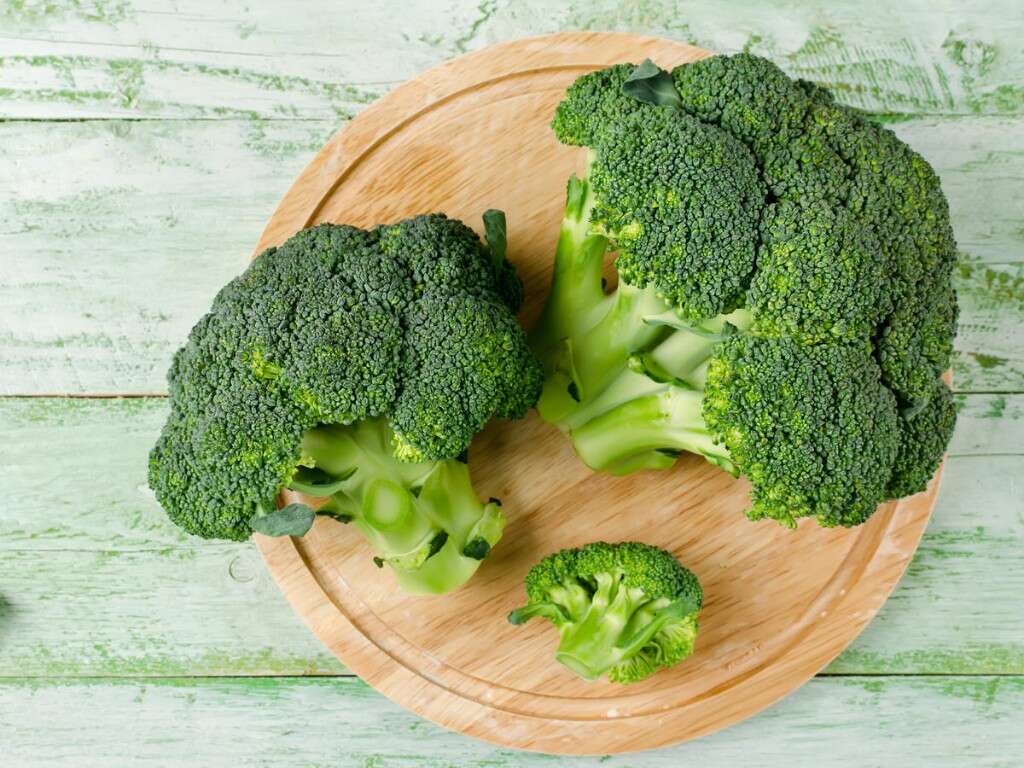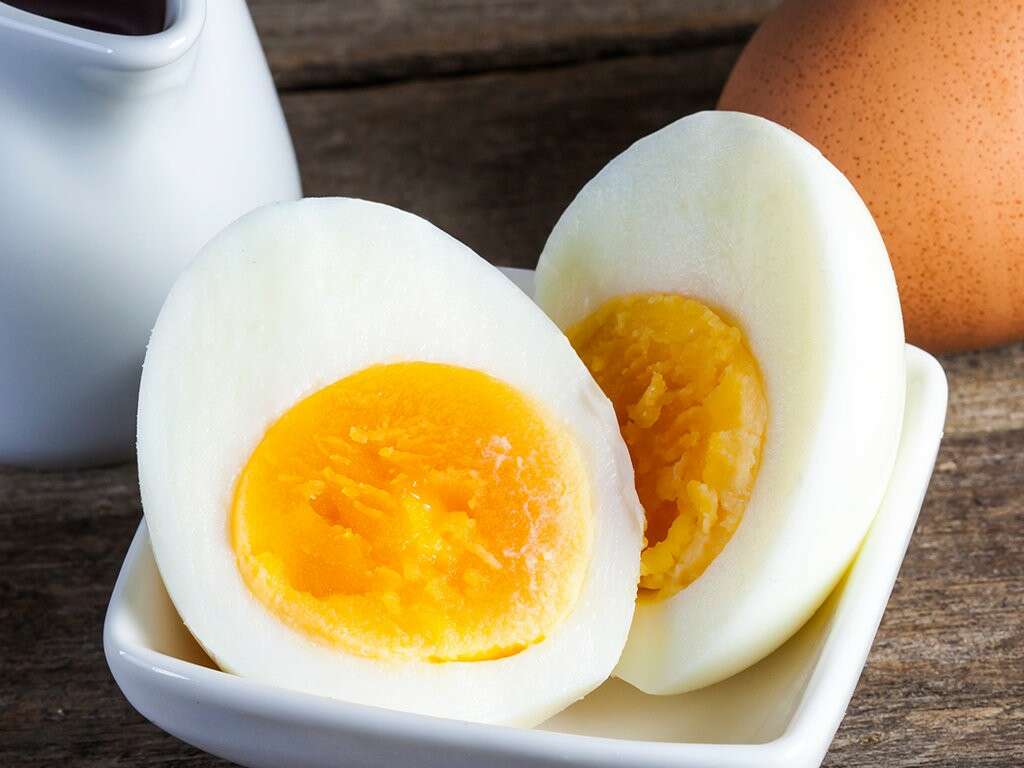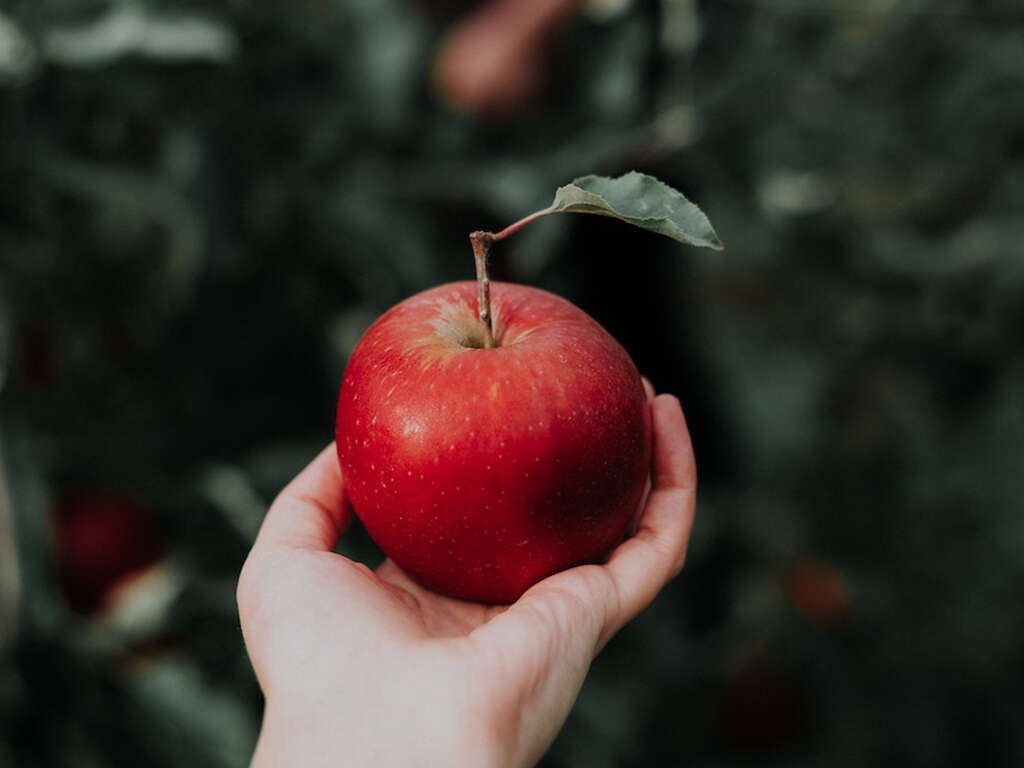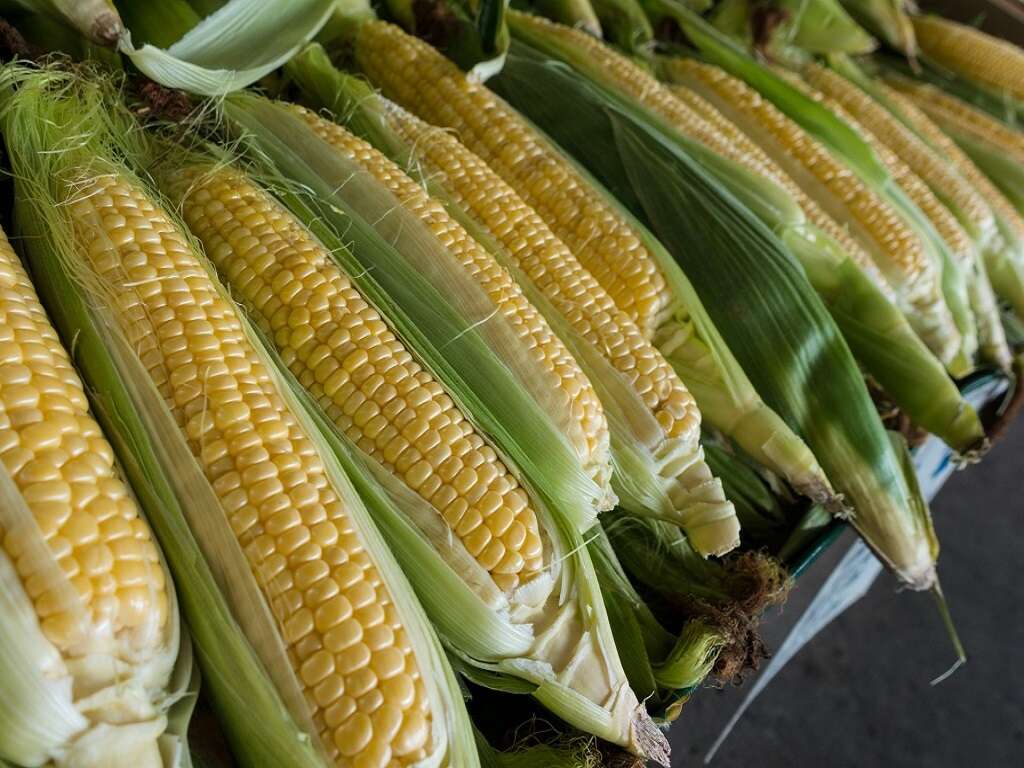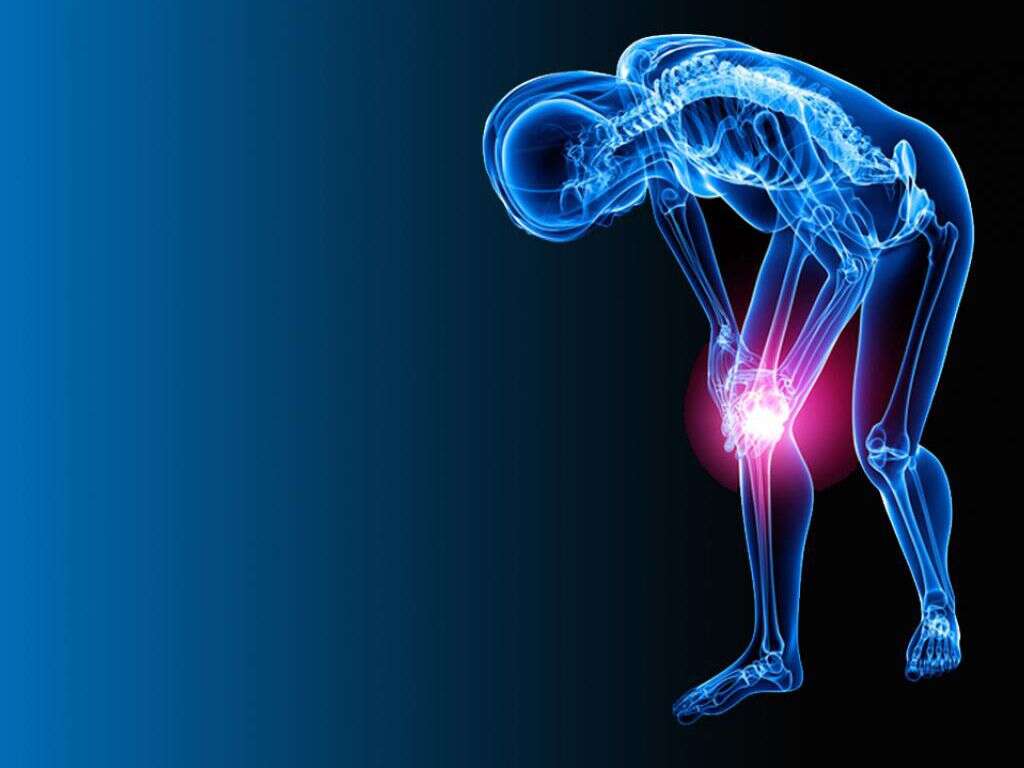10 Low Carb Fruits
All fruits are good for you. They are nutrient rich and filled with antioxidants that can combat cancer, diabetes, metabolic syndrome, and heart disease. However, some fruits have higher carbohydrate contents than others. Thus, if you are watching your carbohydrate intake, some fruits may need to be eliminated or portioned more effectively.
Often called nature’s candy, fruit often receives a bad reputation when it comes to low carbohydrate diets. This is because fruits are rich in fiber, which is necessary for proper digestion and slowing the absorption of food. This is important for preventing blood sugar spikes as well as keeping us feeling full longer.
This list will highlight which fruits are lowest in carbohydrates.
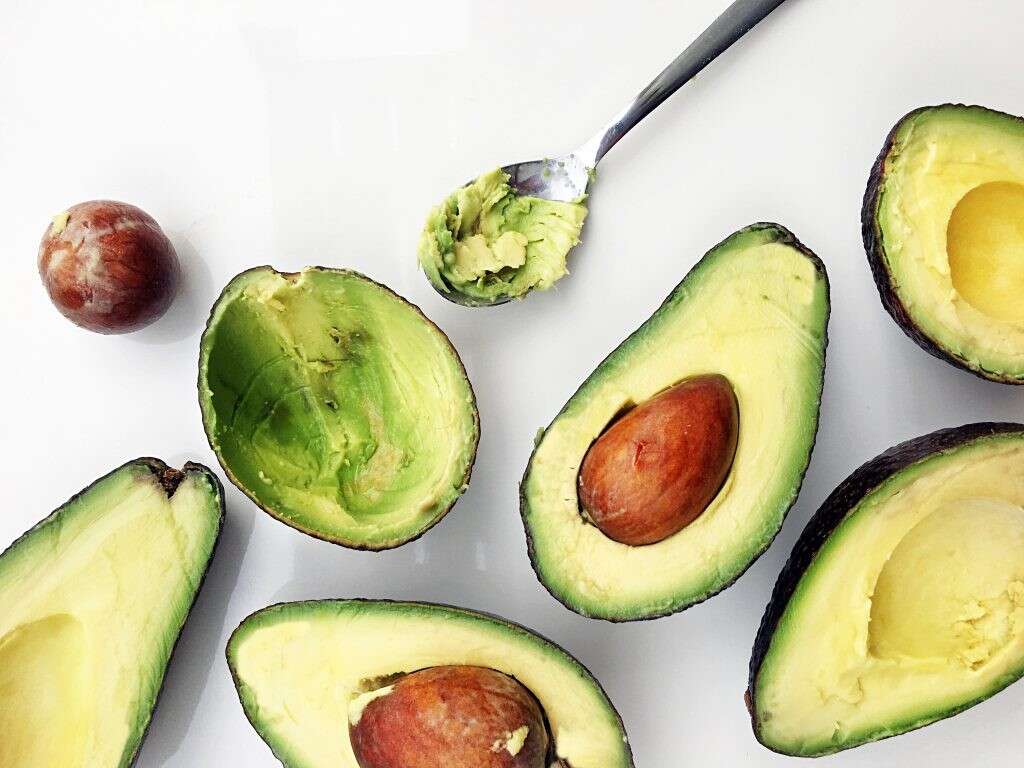
Fruit #1: Avocados
Often, we forget avocados are a fruit and contribute it to the vegetable family. However, avocado is in fact a fruit. Avocados are low carbohydrate. In fact, avocados are low in carbohydrates and high in fat. Two tablespoons only have 0.5 grams of carbohydrates and 5 grams of fat. High fat and low carbohydrate diets have been linked to a lower incidence of diabetes and high blood pressure.
In addition to its high fat and low carbohydrate content, avocados are nutrient powerhouses. They contain a significant amount of fiber, vitamin K, potassium, folate, and vitamin C. Thus, if you are worried a low carbohydrate diet will deprive you of vitamins and minerals, do not fear.

Fruit #2: Strawberries
Berries tend to be low carbohydrate, and strawberries have one of the lowest carbohydrate contents in the berry family. In one cup of strawberries there are roughly 8 carbs, cut that into a half cup and you’ll be able to narrow it down to just 4 grams and still be able to enjoy its great taste as well as reap the benefits of its numerous vitamins and minerals.
Strawberries are great because they can be easily incorporated into the diet. In addition, the fruit is high in vitamin C, folate, manganese, potassium, and fiber. Its vitamin C content is especially impressive. In just a ½ cup of strawberries, one can fulfill 80% of the daily value of the vitamin.
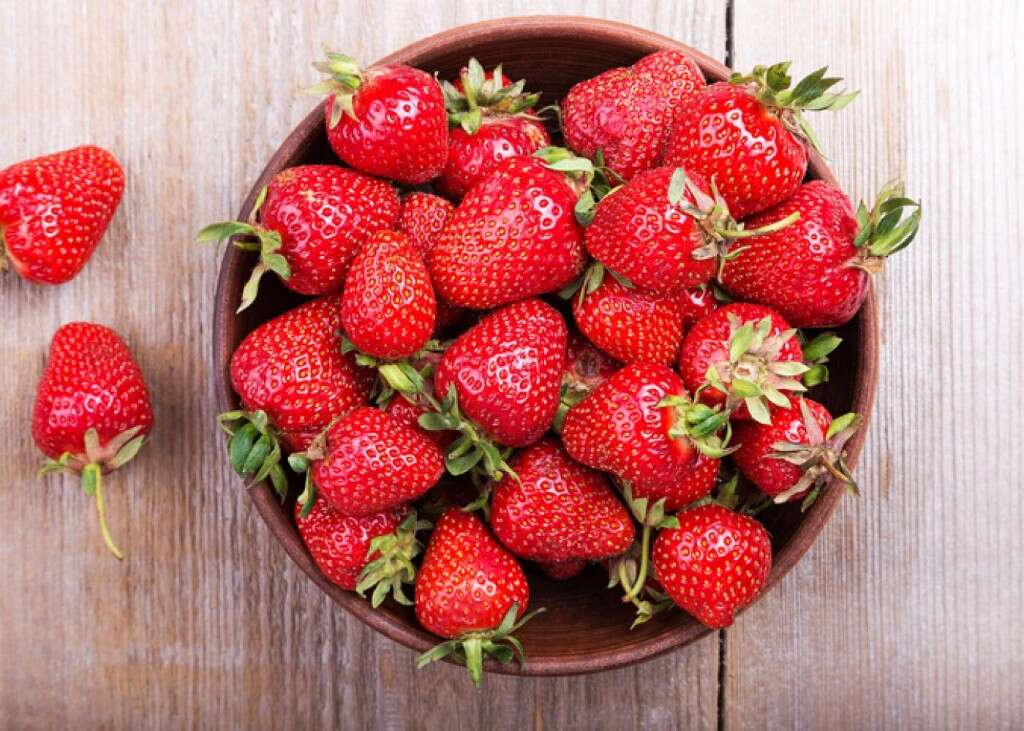
Fruit #3: Blackberries
Another berry makes the list! One ½ cup of blackberries contains a net of 4 grams of carbs. Blackberries are rich in fiber. Fiber has two forms, soluble and insoluble. Soluble fiber dissolves in water and is the form of fiber that is believed to decrease cholesterol levels and maintain blood sugar levels. In addition, it slows the absorption of food. Thus, it will keep you feeling full longer.
Insoluble fiber does not dissolve in water. Instead it adds bulk to stools and allows for stools to pass freely through the digestive tract.
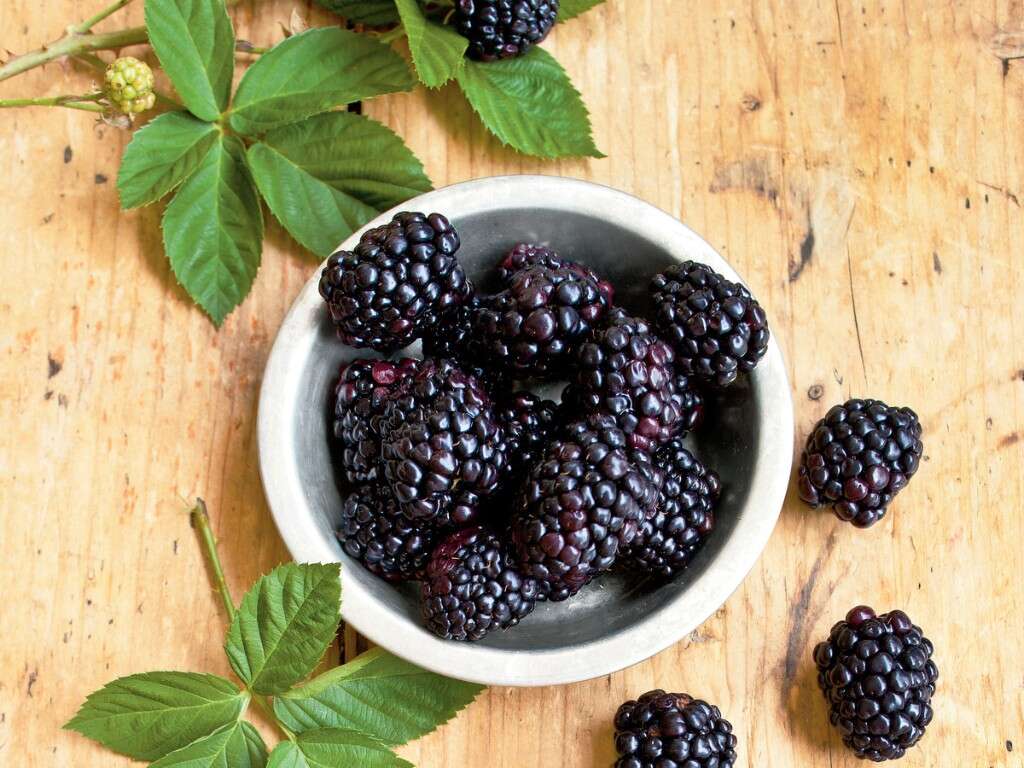
Fruit #4: Blueberries
When it comes to fruit, and many food items, typically the sweeter the taste, the more the carbohydrates. Thus, this is probably why we see that blueberries have more carbohydrates in them then the other berries.
A one cup serving of blueberries yields 17 grams of carbohydrates. This is fairly high if you’re limiting your carbohydrate intake. However, if you simply take a quarter of that serving, you can definitely fit blueberries into your diet. This is a great tactic for individuals who really enjoy blueberries and do not wish to completely eliminate it from their diets
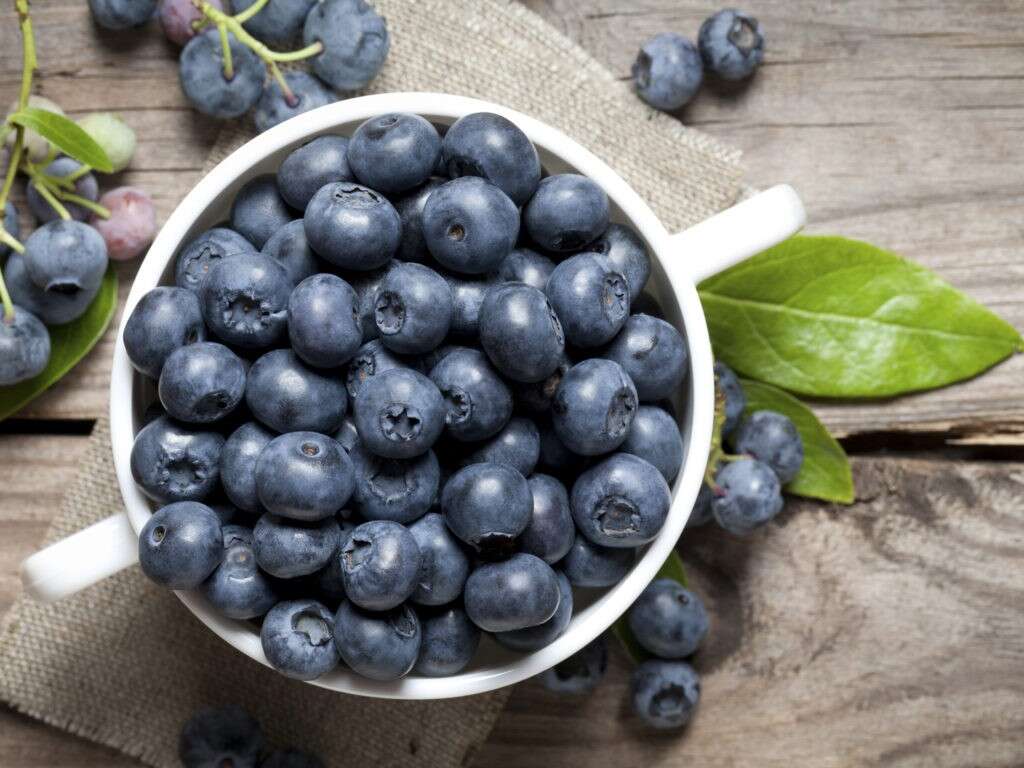
Fruit #5: Tomatoes
Although tomatoes usually get lumped in with the vegetable family, they are a fruit. In addition to being a low carbohydrate fruit, tomatoes are also loaded with antioxidants. Some of these antioxidants include lycopene and vitamin C. Lycopene is a red carotene and is found in red and dark orange food items such as watermelon, carrots, and papayas. Tomatoes have one of the highest amounts of lycopene.
Tomatoes can easily be incorporated into many meals. They can be chopped and put in salads and sandwiches. Cherry tomatoes are easy to pack as snacks and taste very good with hummus, avocado, or salt and pepper!
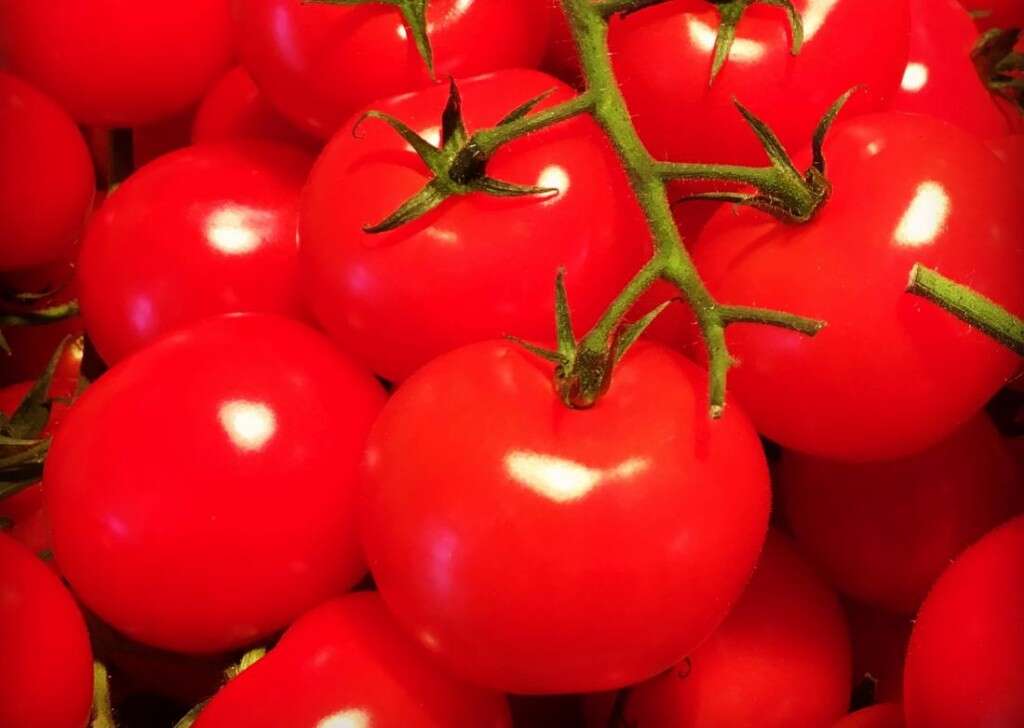
Fruit #6: Coconuts
Coconuts are often forgotten as they are not commonly consumed. However, this fun tropical fruit is a low carbohydrate fruit. Some say coconuts are not a fruit. Rather, some state the food item is a seed. And some say the food is both.
In just one ½ cup of coconut, there are 13 grams of fat and just 2.5 grams of net carbohydrates. Coconuts can be tricky to work with. However, the benefits are worth it. It is recommended to open the coconut, scoop out all the meat, and store in the fridge. Coconut can also be bought dried or canned. If you are buying the canned version, make sure to pay attention to the labels. Some versions may have a significant amount of added sugar.
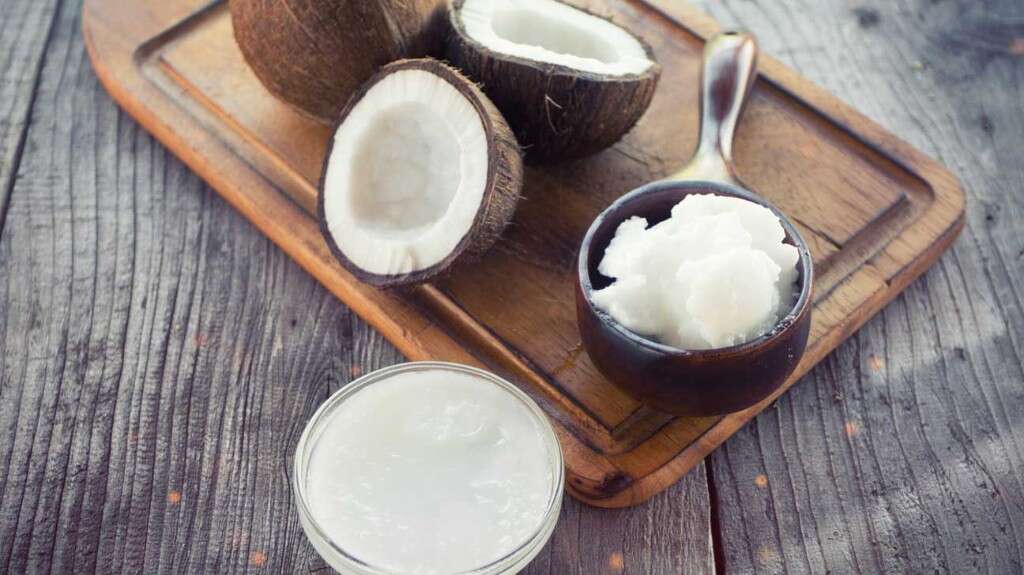
Fruit #7: Citrus
Worried you might have to cut back on the lemons and limes you put in your water or to season your food to follow a low carbohydrate diet? Well, no worries, lemons and limes are safe on a low carbohydrate diet. In addition, lemons and limes provide a significant amount of vitamin C and antioxidants for just 4 to 5 grams of carbs. However, because most people only sprinkle or squeeze lemons or limes on food or water, chances are you aren’t even consuming a full serving.
Citrus such as lemons and limes are great for low carbohydrate diets. However, be wary of oranges and grapefruit. These fruits contain significant amounts of carbs in comparisons to lemon and limes.
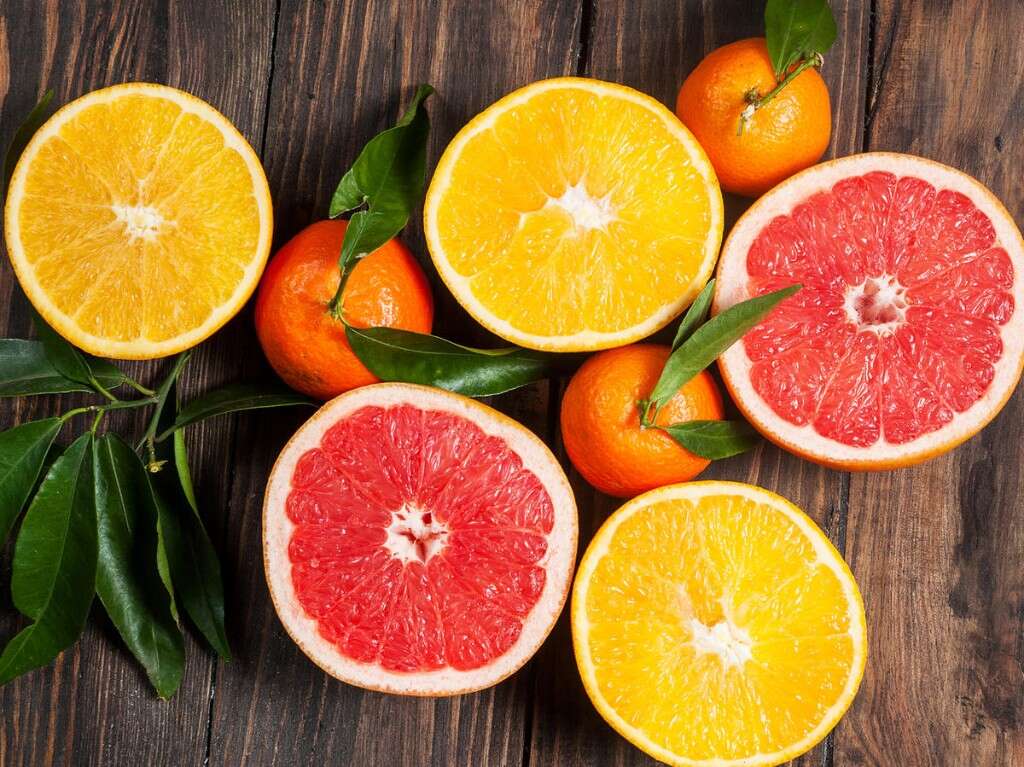
Fruit #8: Honeydew
Honeydew is great on a summer day due to its juicy refreshing taste. Honeydew has 8 grams of carbohydrates per half cup. In addition, the fruit has many health benefits.
Hydration requires not just water but proper electrolytes as well. Honeydew is 90% water and contains numerous electrolytes such as potassium, magnesium, sodium, and calcium, which aid in hydration. The combination of water and nutrients in the fruit makes honeydew great for hydration after a long workout or is a good way to stay hydrated if you’re trying something different from plain water.
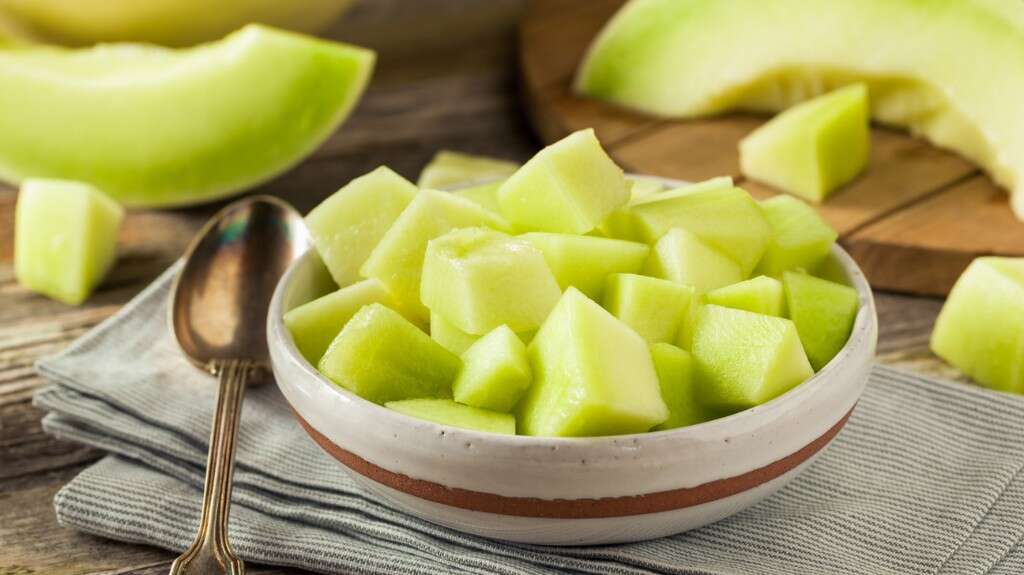
Fruit #9: Olives
When people think about fruits, olives are not something that comes to mind. Well, not only are olives fruits, they are also low in carbohydrates and high in fat. This makes it great for low carbohydrate diets. In a ½ cup of olives, there is a total of 3 carbs, and 2 grams of these carbs come from fiber. In addition, the fruit has 12 grams of fat. This high fat content comes with only 110 calories.
In addition to its low carbohydrate profile, the fruit is great for heart health. Olives contain biophenols, which suppress the oxidization of LDL (bad cholesterol), which has been shown to play a role in the development of cardiovascular disease. High levels of LDL in the blood amplify oxidative stress, which hardens the arterial walls (called atherosclerosis). The biophenols in olives reduce blood pressure, therefore reducing the development of arterial plaque as well.
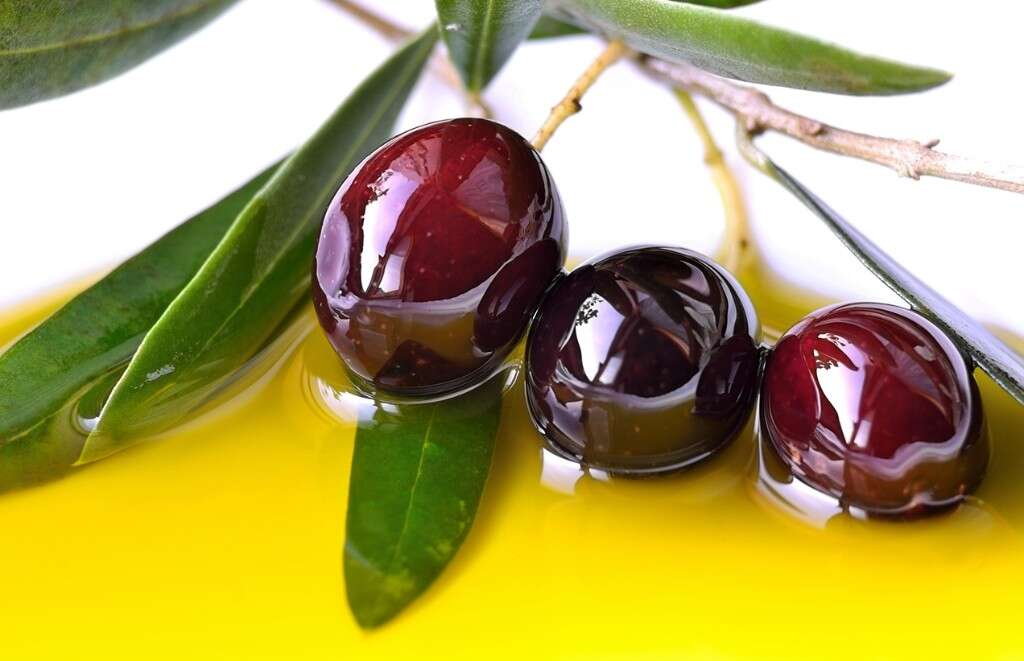
Fruit #10: Raspberries
Raspberries have a very low carbohydrate content. In fact, a half cup of raspberries contains 3 grams of net carbohydrates. There is a difference between total carbohydrates and net carbohydrates. In calculating net carbs, many people will take the total number of carbohydrates from the product and subtract fiber amount. This is because fiber is not absorbed by the body, thus has little effect on blood sugar. Many fruits and vegetables will specify net carbs as they tend to be high in fiber.
Raspberries are a prime example of that difference. The total carbohydrate amount of a ½ cup of raspberries is 7 grams. However, 4 grams of those carbohydrates are from fiber.
